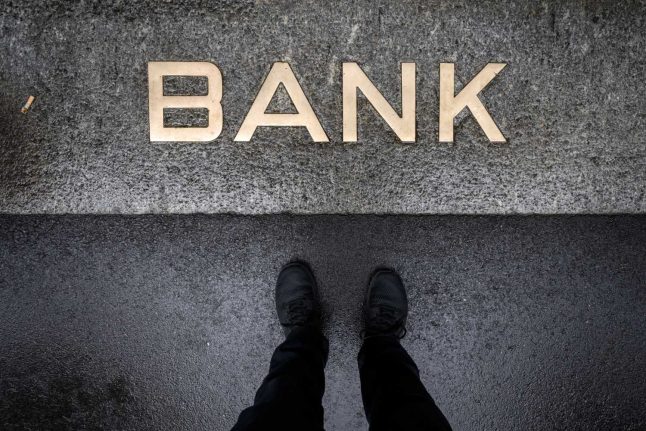Although Switzerland has managed to maintain its affection for cash – even during the coronavirus pandemic – more than its neighbours, having a bank account is still absolutely essential in Switzerland.
For expats, despite some positive changes in recent years, using international bank accounts can still attract high fees to transfer money or withdraw cash from ATMs, which also makes keeping your home country account an expensive option.
There are also two different types of banks in Switzerland: national banks and cantonal banks.
Switzerland’s strangest taxes – and what happens if you don’t pay them
National banks include some of the best known financial institutions all over the world while cantonal banks can only be used by residents of that canton – which will usually mean that you can’t open an account with a cantonal bank until you live that canton or have proof that you will be.
But ultimately, choosing the right account for you will depend on your circumstances – with the first question being whether or not you live in Switzerland at the present time.
But first things first – currency.
If you didn’t know it already, then now’s a good time to find out – Switzerland is not in the European Union or the Eurozone, meaning that the Swiss franc rather than the euro is the local currency.
That said, with the eurozone on every border (ok, other than Liechtenstein which also uses the Swiss franc), many banks know the value of being able to withdraw euros and offer accounts where withdrawals can be made in both.

The Swiss National Bank. Stable and reliable but probably not an option for everyone. Photo: FABRICE COFFRINI / AFP
Opening an account from abroad
With bank branches disappearing and most banking taking place online, in most countries you can open a bank account without having to walk into a branch with a crisp 20 in hand.
If possible, this can be the preferred option as getting a place to live, utilities etc can be difficult or impossible without a local bank account.
That said, opening an account in Switzerland will not necessarily be easy for non-residents – particularly if you aren’t a billionaire who’s looking to avoid tax on your gold doubloons.
There are some options for opening accounts in Switzerland if you do not plan to move here, however these are likely to be expensive and will only be useful for certain people (see above: gold doubloons, international men of mystery, etc).
If you are moving to Switzerland but want to open an account before you get here, you will have some better options, with some banks allowing you to open an account before moving here – although you’ll need to have your documents at the ready. Which brings us to…
Paperwork
Anyone who has lived in Switzerland or even passed through will know the Swiss love their paperwork.
The first thing you’ll need when opening a bank – from here or from abroad – will be a copy of your ID (passport or EU residence card).
Then you will need to provide evidence of your residence status, which is difficult but not impossible if you are abroad.
Other documentary evidence is likely to include a letter from your employer to prove that you are solvent and in some cases proof of address in Switzerland (or even the canton if you are applying with a cantonal bank).
READ: What’s the best way to save or invest money in Switzerland?
Which bank should I choose?
Asking us which bank to choose is like asking us what you should have for lunch. We don’t know and as this guide is not sponsored by anyone, we have no incentive to recommend one over the other.
Some of Switzerland’s biggest and best known banks include Credit Suisse, UBS and Raiffeisen, while Swiss Post also has an extensive range of banking services.
Then there are the new kids on the block – known as ‘neobanks’ – including Neon and N26 who offer a number of similar services but are usually cheaper.
Then there is an extensive list of cantonal banks which we could list but we’d run out of ink.
Do I need to visit a branch?
Much of the document sharing can take place online or even via the post. In some cases, the Swiss bank will have a relationship with banks in your home country and you will be able to attend in person there.
Some other banks however will require you to personally attend in order to finalise the opening process.
How much will an account cost?
Typically, an account with one of the larger banks in Switzerland will set you back around CHF5 per month in account-keeping fees.
Unlike in some other countries, this will not include many associated transactions – like having credit or debit cards or using ATMs from non-affiliated banks.
For an all inclusive deal, you might need to upgrade to a ‘premium account’ – which will cost around CHF30 and will cover most usual transactions and withdrawals.
As said above, newer banks like N26 and Neon are likely to be cheaper – although accessing a branch is much more difficult or impossible with neobanks.
Editor’s note: Keep in mind that this article, as with all of our guides, are to provide assistance only. They are not intended to take the place of a financial advisor.





 Please whitelist us to continue reading.
Please whitelist us to continue reading.
You wish to note to readers, that Americans will have great difficulty in finding a bank which will accept an US citizen’s account (this is the result of certain US laws which impose significant reporting requirements back to the US and in addition can expose a Swiss bank to US jurisdiction). Depending on the bank, they may impose larger fees, or require much larger deposits, or they may decline to open an account.